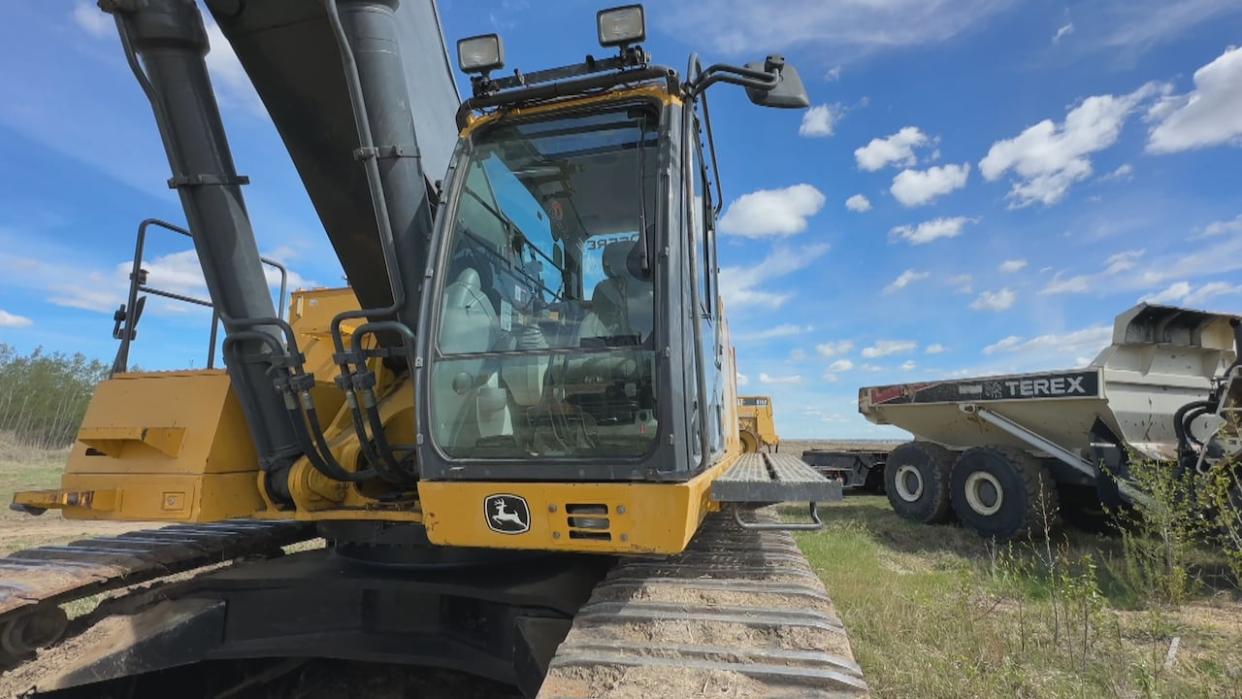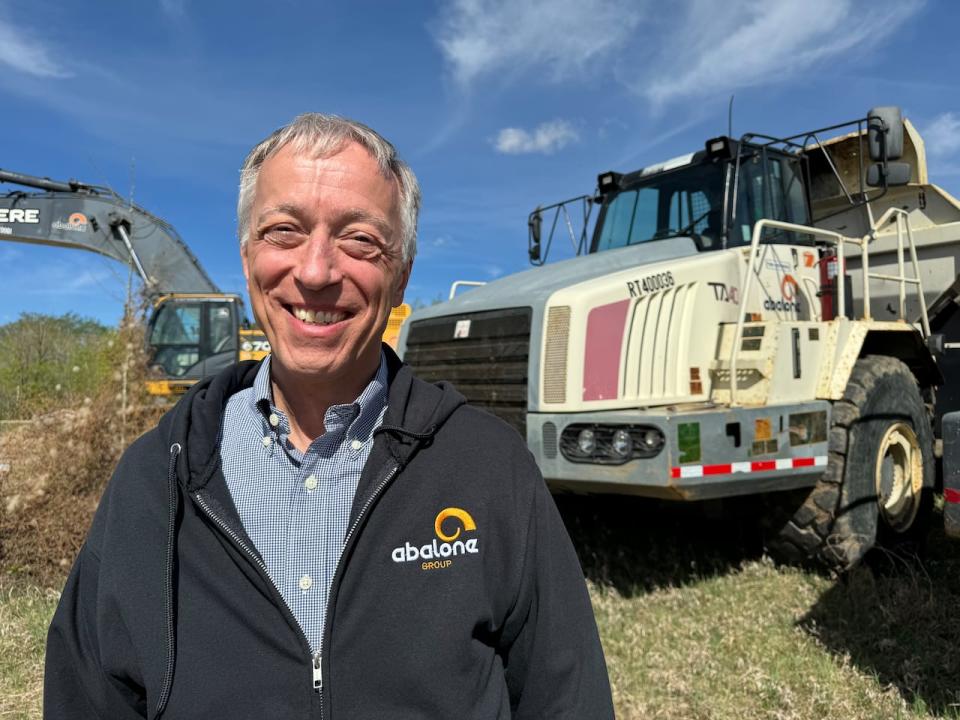Construction labour shortage weighs on Alberta businesses as growth accelerates

Alberta's population boom is increasing pressure on the construction sector to build the infrastructure to accommodate growth and business owners say they're already feeling the labour crunch.
A shortfall of workers in skilled trades is an issue across Canada, but with Alberta adding more than 200,000 new residents last year, the industry needs to find a way to keep up with more road and bridge repairs, new housing development and major infrastructure work.
"It's literally the No. 1 issue on everyone's mind," said Independent Contractors and Businesses Association Alberta president Mike Martens.
"From the sewage lines underneath the water treatment plants to the roads, bridges, hospitals — all these things that really create the amazing life we have in North America is old infrastructure," he said.
"We've taken it for granted, and now it's needing fixing, and we don't have the people available to fix it."
Industry group BuildForce Canada forecasts Alberta will need to replace almost a quarter of its 2023 labour force within a decade.
While the province's younger population relative to some other parts of Canada should help make it easier to close the gap, factoring in growth means there could still be a shortfall of 22,000 workers by 2033.
Statistics Canada data shows Alberta's construction job vacancy rate jumped to 6.7 per cent in the third quarter of 2023. In comparison, in the five years leading up to the start of the COVID pandemic in 2020, the province's construction job vacancy rates never exceeded 3.5 per cent.

Gary Zeitner is senior vice president of Edmonton-based civil construction firm Abalone Group of Companies. (Madeline Smith/CBC)
Gary Zeitner is senior vice president at Abalone Group of Companies, a civil construction firm. The company employs heavy equipment operators that do the excavation and grading work to prepare for the next stage of construction — it's the bedrock of virtually any infrastructure project, whether that's a new residential subdivision or an industrial project.
"We do not bid on all of the opportunities that are out there, and the reason is entirely about our labour force," Zeitner said.
"We have an asset base of equipment that would allow us to do much more work than we've done in the last five years, but we simply can't get the labour force that would be able to make use of all of that equipment."
Operating the excavators and other equipment involved in the company's work requires experience, and that takes time and on-the-job training, Zeitner said.
"Our core group has come back, and we've got very few other people that we've needed to hire this year so far. But one or two phone calls could change all of that and we would be needing to almost double our workforce ... it would be challenging, that's for sure."
Alberta is Calling for trades
Alberta's construction landscape is complicated because of the significant presence of industrial work, mostly in the energy sector.
Martens said that makes the competition for a limited pool of skilled workers more intense, since industrial projects frequently offer higher wages. Major projects like the Dow Chemical plant and the Air Products hydrogen plant, both in the Edmonton area, can take a huge portion of the workforce.
The provincial government has boosted funding for post-secondary apprenticeship programs, and enrolment is up. But as that new workforce arrives, it will still take time for them to gain the kind of experience the construction sector is bracing to lose in a significant wave of worker retirements.
The province is also trying to bolster employment ranks with the latest round of the Alberta is Calling campaign. It started this month, with advertising in Quebec, Ontario and B.C. to lure workers from a list of 55 eligible trades.
People who move to Alberta before the end of 2024 and live in the province for at least a year while working in a high-demand skilled trade can apply for a one-time refundable $5,000 tax credit, which the government is promoting as a "moving bonus."
Industry officials say those efforts are helpful. But there's no immediate fix for the issues they know are coming.
The Alberta Road Builders and Heavy Construction Association is advocating for changes to ensure more certainty when it comes to funding for public infrastructure projects.
The association represents contractors and companies like Zeitner's, employing heavy equipment operators that move earth for infrastructure projects — a highly skilled trade, but not one where workers have to come through a formal apprenticeship or school program.
CEO Ron Glen said companies still need ways to ensure more predictable work to attract employees, and better plan their own budgets.
But without enough workers to make sure their own timelines are clear, "It makes it very difficult for companies," Glen said.
"We have seen a consolidation in the industry, that there are companies that just can't absorb these kinds of risks."

 Yahoo News
Yahoo News 
